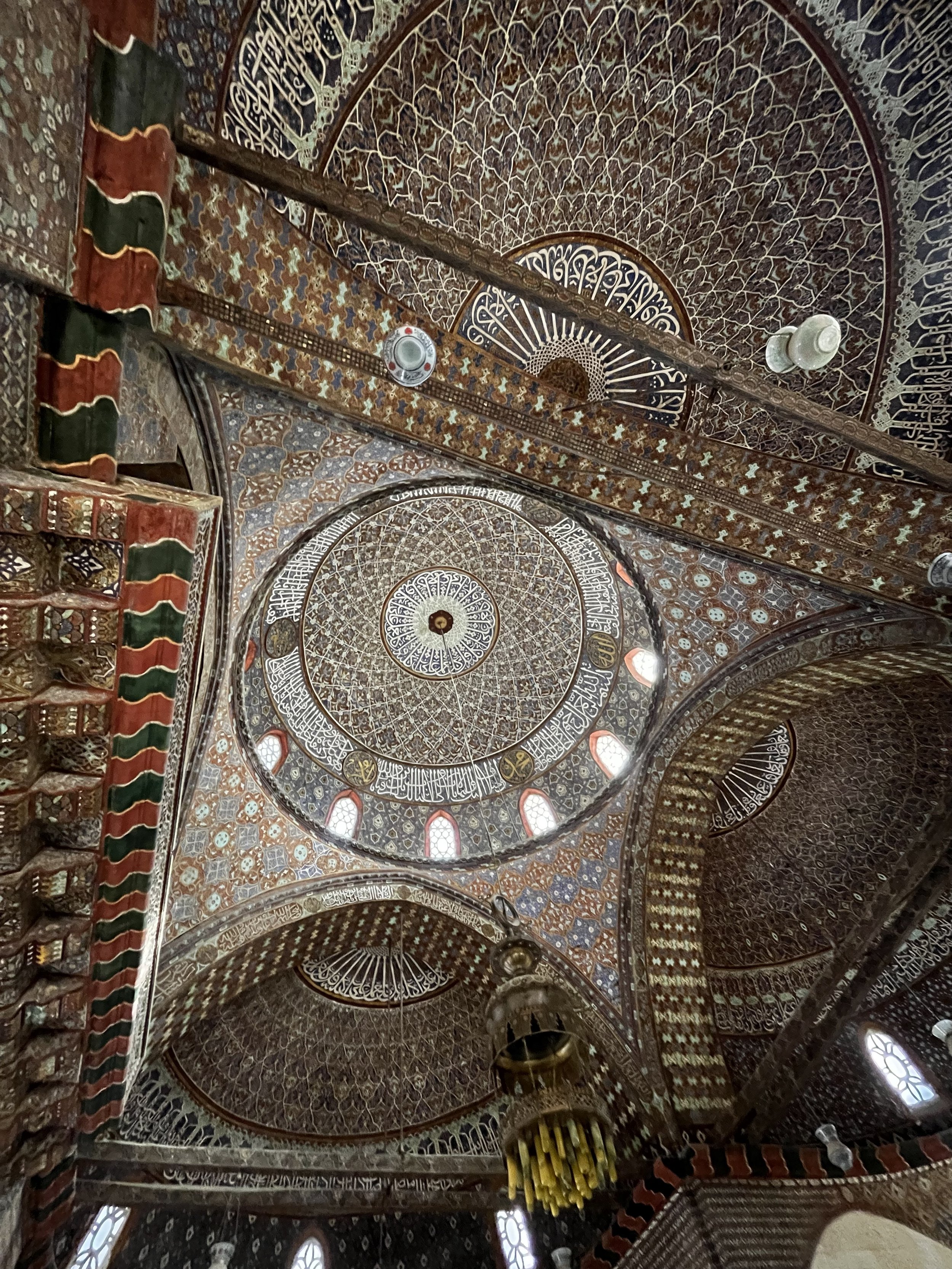Egypt’s Quiet Sixteenth Century: A Historiography of Transition…
reexamines one of the most obscure and misunderstood periods in Egypt’s Islamic history—the century that followed the Ottoman conquest of 1517. Often described as an era of decline or “quietude,” this period has long stood as a blank space in the historical record. Based on my PhD dissertation and currently under preparation, this book asks why.
Interior of the dome of Sulayman Pasha al-Khadim’s mosque, built in Cairo’s Citadel in 1538. © Anthony T. Quickel.
Focusing on the disruptions that accompanied the end of the Mamluk Sultanate and the consolidation of Ottoman rule, the study investigates how Egypt’s intellectual and institutional landscape was transformed: how the structures that had sustained historical writing, book production, and scholarly life fractured and re-formed in new ways. Drawing on chronicles, manuscript catalogs, and material evidence, it traces the shifting networks of authors, readers, and texts that linked Cairo’s book markets and religious institutions to the wider Ottoman world.
By examining what was written—and what was not—Egypt’s Quiet Sixteenth Century reframes this pivotal moment as a historiographical problem rather than a historical void. It argues that the sixteenth century marked not a silence in Egyptian history but a reconfiguration of how knowledge, authority, and memory were made.
This monograph is under contract with Brill | V&R unipress and is expected in the autumn 2026.
